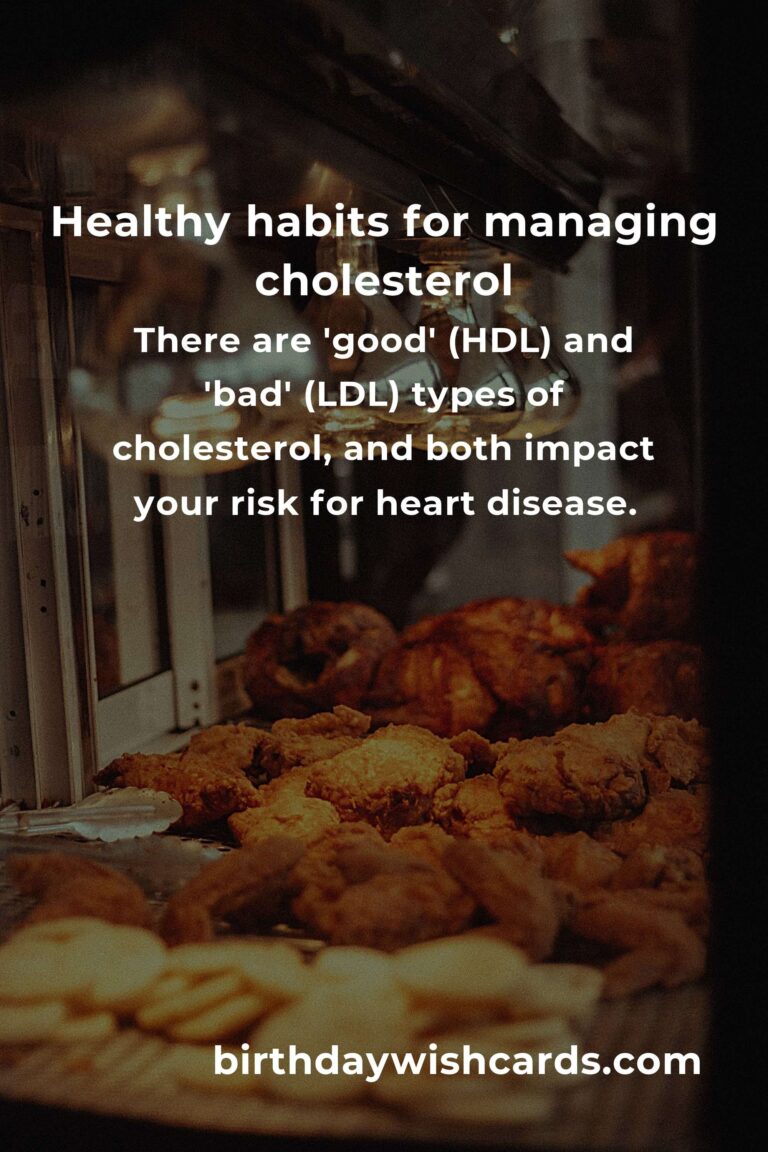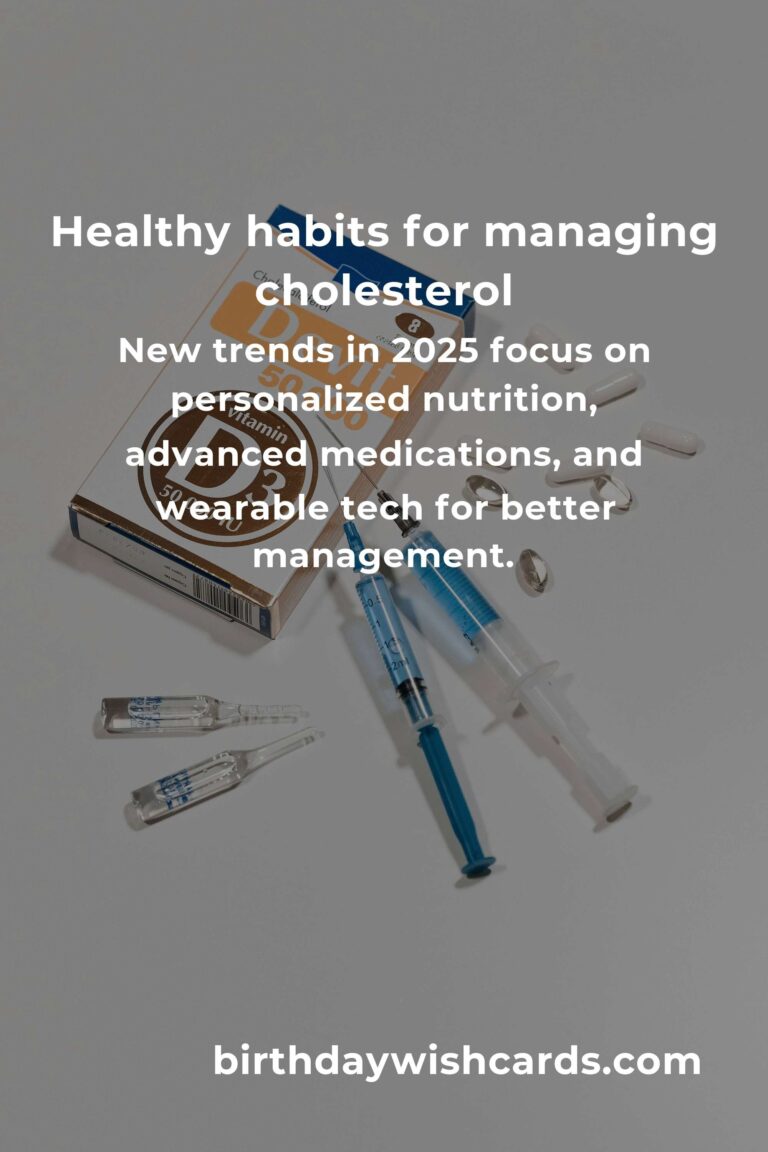
Cholesterol may seem like a complicated topic, especially for those new to health and nutrition. With changing guidelines and fresh scientific insights in 2025, it’s no wonder many want a simple, up-to-date explanation of what’s important. This comprehensive beginner’s guide demystifies cholesterol, explains how it affects your body, and gives actionable strategies to manage and improve your cholesterol profile for a healthier future.
What is Cholesterol?
Cholesterol is a fatty substance found in every cell of your body. It’s essential for building cell membranes, producing certain hormones, and helping your body digest foods. While your liver produces most of the cholesterol your body needs, some is also derived from animal-based foods.
Types of Cholesterol
Cholesterol travels through your bloodstream in particles called lipoproteins. The two main types are:
- LDL (Low-Density Lipoprotein) – “Bad” Cholesterol: High levels can cause fatty buildups (plaques) in arteries, raising the risk of heart disease and stroke.
- HDL (High-Density Lipoprotein) – “Good” Cholesterol: Helps remove LDL cholesterol from the arteries, lowering your risk of cardiovascular disease.
Another important type is triglycerides, a kind of fat found in your blood. High triglyceride levels, especially combined with high LDL or low HDL, further increase cardiovascular risks.
Why Cholesterol Matters in 2025
Heart disease remains the leading global cause of death in 2025. Modern lifestyles—high in processed foods, stress, sedentary routines—contribute to concerning cholesterol trends. Early understanding and proactive management are key to avoiding long-term complications and supporting overall health.
Understanding Cholesterol Numbers
Your doctor will check your cholesterol with a simple blood test called a lipid panel. Here are general benchmarks in 2025:
- Total Cholesterol: Below 200 mg/dL is desirable.
- LDL (“bad”): Optimal is below 100 mg/dL; above 160 mg/dL is considered high.
- HDL (“good”): 60 mg/dL and higher helps lower risk; less than 40 mg/dL for men or 50 mg/dL for women increases risk.
- Triglycerides: Below 150 mg/dL is normal.
Always consult your healthcare provider for a proper diagnosis since risk factors and ideal numbers may vary based on age, sex, genetics, and underlying conditions.
Causes of High Cholesterol
High cholesterol can result from a combination of genetic and lifestyle factors. Common causes include:
- Diet high in saturated and trans fats
- Lack of physical activity
- Obesity or being overweight
- Smoking
- Excessive alcohol consumption
- Genetic predisposition (familial hypercholesterolemia)
How Diet Affects Cholesterol
Your dietary choices powerfully influence your cholesterol levels. Here’s how different nutrients play a role:
- Saturated fats (found in red meat, full-fat dairy): Increase LDL cholesterol
- Trans fats (found in processed foods): Increase LDL and lower HDL—avoid these as much as possible
- Soluble fiber (found in oats, beans, lentils, fruits): Helps reduce cholesterol absorption
- Omega-3 fatty acids (fatty fish, flaxseeds, walnuts): Lower triglycerides and may increase HDL
Foods to Eat and Limit for Better Cholesterol
Top Foods for Lower Cholesterol
- Oats and whole grains: Rich in soluble fiber for cholesterol management
- Beans and legumes: Excellent plant-based protein and fiber source
- Fatty fish: Salmon, sardines, trout are packed with heart-healthy omega-3s
- Nuts: Almonds, walnuts, pistachios offer healthy fats
- Fruits: Apples, berries, citrus—especially rich in soluble fiber and antioxidants
Foods to Limit or Avoid
- Red and processed meats
- Full-fat dairy products
- Butter, lard, coconut oil
- Baked goods with trans fats (cookies, cakes, pastries)
- Fried and highly processed foods
Physical Activity and Cholesterol
Exercise is a proven way to improve cholesterol:
- Moderate aerobic activity: Walking, cycling, or swimming 30–60 minutes most days can increase HDL and lower LDL and triglycerides
- Resistance training: Lifting weights improves overall cardiovascular health and aids weight management
Other Lifestyle Changes for Healthy Cholesterol
- Quit smoking: Raises HDL almost immediately, while lowering heart disease risk
- Maintain a healthy weight: Even a 5-10% weight reduction can significantly improve lipid profiles
- Limit alcohol: While light or moderate drinking may slightly boost HDL, excess can raise triglycerides
- Manage stress: Chronic stress may impact cholesterol and heart health through hormone effects
Medications and When They’re Needed
Lifestyle changes are the first-line defense, but some people—especially with genetic conditions or multiple risk factors—may require medication.
- Statins: Most common, lower LDL and reduce cardiovascular risk
- Ezetimibe: Blocks dietary cholesterol absorption
- PCSK9 inhibitors: Newer injectables for those who can’t tolerate statins
Your doctor will determine the best medication based on your cholesterol profile and medical history. Medication is most effective when combined with healthy habits.
Debunking Common Cholesterol Myths (2025 Edition)
- “All cholesterol is bad.” – No, HDL is protective; cholesterol is also vital for body functions.
- “Thin people don’t get high cholesterol.” – Genetics and dietary choices also matter, regardless of weight.
- “Eggs are off-limits.” – Moderate egg consumption is generally safe for healthy eaters, but individuals with certain conditions should consult their doctor.
- “You’ll feel symptoms of high cholesterol.” – High cholesterol is ‘silent’ and rarely causes symptoms until serious heart problems arise.
Cholesterol and Special Populations
Children and Teenagers
Unhealthy cholesterol patterns are now seen at younger ages, often due to diet and inactivity. Early intervention—encouraging movement and nutritious foods—helps avoid adult heart disease.
Older Adults
While age naturally increases cholesterol, lifestyle measures still make a big difference in reducing complications and supporting quality of life.
Women and Cholesterol
Cholesterol rises after menopause; regular screening and attention to heart health remain crucial.
Future Trends: Cholesterol Management in 2025
- Personalized nutrition: Advances in genetic testing and nutrition science allow tailored dietary plans for cholesterol control.
- Wearable health tech: Smart devices help track physical activity, diet, and vital signs for better, ongoing management.
- New medications: Novel therapies provide more options for those needing additional intervention.
- Greater awareness: Public health initiatives continue to spread the word about cardiovascular risk and prevention.
When to See a Doctor
Adults should have their cholesterol checked at least every five years, or more often if there are risk factors or a family history. Talk to your provider if you have concerns about your cholesterol, lifestyle habits, or risk factors such as high blood pressure, diabetes, or obesity.
Summary: Your Cholesterol Roadmap for 2025
- Know your numbers through regular tests
- Adopt a heart-healthy, fiber-rich, low-saturated fat diet
- Exercise regularly and maintain a healthy weight
- Partner with your doctor to determine if medication is necessary
- Stay informed on new research and recommendations
Conclusion
With the right knowledge and a proactive approach, cholesterol doesn’t have to be confusing or frightening. Use this 2025 beginner’s guide to support a healthier heart—and a longer, more vibrant life.
Always seek professional medical advice before making changes to your diet, exercise, or medications.
Cholesterol is a crucial substance in the body, but its levels must be managed for heart health.
There are ‘good’ (HDL) and ‘bad’ (LDL) types of cholesterol, and both impact your risk for heart disease.
Diet, exercise, genetics, and lifestyle choices all affect your cholesterol profile.
Regular screening, a heart-healthy diet, and physical activity are key to preventing high cholesterol complications.
New trends in 2025 focus on personalized nutrition, advanced medications, and wearable tech for better management.
#cholesterol #hearthealth #wellness #healthtips #healthyliving #nutrition

